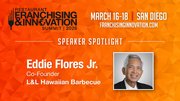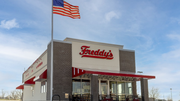News
Sysco steps away from US Foods acquisition following federal court injunction
Sysco Corp. won't be appealing a federal court ruling against its planned $3.5 billion acquisition of US Foods and will be going back to the drawing board to determine other venues for expanding its food distribution business.
June 29, 2015
Sysco Corp. won't be appealing a federal court ruling against its planned $3.5 billion acquisition of US Foods and will be going back to the drawing board to determine other venues for expanding its food distribution business, which industry analysts and Sysco say may include buying smaller market players.
Since December 2013, when the mega food distributor announced its intentions to buy its top competitor, Sysco has been banking on the deal to gain leverage in the competitive environment, according to a Wall Street Journalreport Monday morning.
The court ruling last week, by U.S. District Judge Amit Mehta, included a preliminary injunction citing the deal would negatively impact competition in the industry.
"The proposed merger of the country's first and second largest broadline food service distributors is likely to cause the type of industry concentration that Congress sought to curb at the outset before it harmed competition," the judge wrote in the court ruling, according to WSJ.
Early this year the Federal Trade Commission filed suit against the acquisition citing antitrust concerns.
"After reviewing our options…we have concluded that it's in the best interests of all our stakeholders to move on," Sysco Chief Executive Bill DeLaney said in a statement Monday, according to the WSJreport. "However, we are prepared to move forward with initiatives that will contribute to the success of Sysco and our stakeholders."
The US Foods acquisition was the crux of Sysco's strategy for boosting its food and supplies distribution footprint and was considered a big strategy for dealing with declining profit and achieving needed cost savings.
In backing off the acquisition Sysco will pay a $300 million breakup fee to US Foods and a $12.5 million breakup fee to Performance Food Group, according to WSJ. That's in addition to $355 million Sysco had spent on acquisition-related costs such as legal counsel and integration efforts.
In retrenching to pre-acquisition cost savings strategies Sysco faces more than a few challenges, according to industry analysts cited by WSJ.
"This plan B is not that compelling to us," said Guggenheim analyst John Heinbockel in the WSJreport. "Sysco has embraced cost-reduction efforts before without much bottom-line benefit."
 ChatGPT
ChatGPT Grok
Grok Perplexity
Perplexity Claude
Claude












